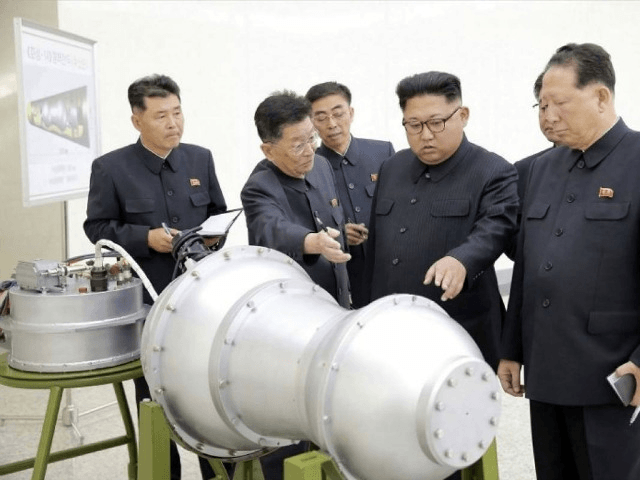North Korea’s ambassador to the United Nations railed against the latest sanctions passed by the Security Council on Monday, which cut off part of the nation’s oil industry and bans North Korean citizens who have not defected from working abroad.
“My delegation condemns in the strongest terms and categorically rejects the latest illegal and unlawful U.N. Security Council resolution,” ambassador Han Tae Song said in Geneva Monday, accusing the United States of pushing for “political, economic, and military confrontation.”
North Korea, Han claimed, was “ready to use a form of ultimate means” against the sanctions. Pyongyang often uses such language without specifying what these means are, though it also routinely threatens a nuclear attack on U.S. soil.
While North Korea’s state newspaper Rodong Sinmun has yet to respond to the sanctions, another state propaganda outlet, the Korean Central News Agency (KCNA), published remarks from an alleged “spokesman for the Korea Asia-Pacific Peace Committee (KAPPC),” a North Korean communist body, who claimed that North Korea’s nuclear program has “helped greatly deter the danger of a nuclear war by the U.S. in Far East and Asia-Pacific.”
“However, the hostile forces including the U.S. are going desperate to apply fresh sanctions and pressure on the DPRK while branding its successful H-bomb test as ‘threat’ to peace and security and ‘challenge’ to UN ‘resolutions,'” the statement continues. “Utterly disgusting is the despicable behavior of the Japanese reactionaries and the south Korean puppet forces taking the lead here.”
North Korea announced this month that it had successfully tested a “perfect” hydrogen fusion bomb. “All components of the H-bomb were homemade … thus enabling the country to produce powerful nuclear weapons as many as it wants,” state media alleged. Outside observers confirmed that North Korea executed some form of underground nuclear bomb test that had created an artificial earthquake significantly louder than its prior test in 2016, but have yet to definitively prove the weapon in question was a hydrogen bomb.
While claiming in response to global condemnation that the communist regime’s nuclear program is intended for peace, North Korean state media routinely threatens to use nuclear weapons against South Korea and the United States. A week before testing this latest nuclear device, Pyongyang shot a missile towards Japan’s northern Hokkaido island, threatening millions. Following the test, North Korea threatened an electromagnetic pulse (EMP) attack on North America, which would not cause physical destruction but instead severely impair the nation’s electronic grid in the long term.
The United Nations approved a resolution Monday banning any trade in textiles with North Korea, capping oil exports to two million barrels a year, and preventing North Korean citizens from working abroad. North Korea retains most of the salaries of its foreign workers, many of whom staff entertainment restaurants in China.
The resolution lacked some of the provisions in a draft circulated last week, which would have banned all oil exports from North Korea and banned shipments of North Korean coal from a port commonly used for trade with Russia. While vocally opposing new sanctions, Russia signed onto Monday’s resolution.
